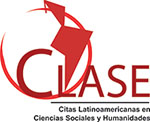Estrategias innovadoras para la enseñanza de las matemáticas en la educación básica: el enfoque de gamificación adaptada
DOI:
https://doi.org/10.23857/dc.v11i4.4552Palabras clave:
Gamificación, educación básica, matemáticas, rendimiento académico, motivaciónResumen
Este estudio tiene como objetivo evaluar el impacto de la gamificación adaptada en el rendimiento de los estudiantes de educación básica en la enseñanza de las matemáticas, específicamente en la resolución de ecuaciones lineales y problemas complejos. La metodología utilizada fue un diseño cuasi-experimental con un enfoque correlacional descriptivo, donde se asignaron 80 participantes a dos grupos: experimental y control. Se elaboró un test estructurado para medir las destrezas en matemáticas, validado por expertos y con un alfa de Cronbach de 0.89, lo que asegura su fiabilidad. El análisis de los resultados se realizó mediante pruebas estadísticas como la correlación de Pearson, el cálculo de la d de Cohen y la prueba t de Student para muestras independientes. Los resultados mostraron que el grupo experimental, que participó en actividades gamificadas, alcanzó una mejora significativa en el rendimiento en comparación con el grupo control. Además, la motivación y la rapidez en la resolución de problemas también mejoraron considerablemente en el grupo experimental. En conclusión, la gamificación adaptada se demuestra como una estrategia eficaz para mejorar tanto el rendimiento académico como la motivación de los estudiantes en matemáticas. Este estudio sugiere que la implementación de la gamificación en la educación básica puede ser una herramienta poderosa para transformar la enseñanza de las matemáticas.
Citas
Aldrich, C. (2009). The complete guide to simulations and serious games: Everything you need to know about design, tools, and techniques for effective learning simulations. John Wiley & Sons.
Anderson, C. A. (2013). The impact of violent video games: An overview. In L. J. Shrum (Ed.), The psychology of entertainment media (pp. 113–129). Psychology Press.
Anderson, C. A., & Bavelier, D. (2013). Video games and real life violence. Journal of Experimental Social Psychology, 49(3), 6–11. https://doi.org/10.1016/j.jesp.2013.02.004
Bourgonjon, J., Valcke, M., & Soetaert, R. (2021). The impact of digital games on education: The effects of educational games on students' performance. Computers in Human Behavior, 118, 106670. https://doi.org/10.1016/j.chb.2020.106670
Chen, Z., Zhang, X., & Li, W. (2023). Exploring the effectiveness of gamification in teaching mathematics. Journal of Educational Technology & Society, 26(1), 11–24.
Deci, E. L., & Ryan, R. M. (1999). Self-determination theory and the facilitation of intrinsic motivation, social development, and well-being. American Psychologist, 55(1), 68–78. https://doi.org/10.1037/0003-066X.55.1.68
Fitz-Walter, Z., Jafari, J., & Daniels, R. (2014). The use of gamification in education: A systematic review. In European Conference on Games Based Learning, 2, 143-150. Academic Conferences International Limited.
Gee, J. P. (2003). What video games have to teach us about learning and literacy. Computers in Entertainment (CIE), 1(1), 20–20. https://doi.org/10.1145/950566.950595
Hamari, J., Koivisto, J., & Sarsa, H. (2016). Does gamification work? – A literature review of empirical studies on gamification. In 2014 47th Hawaii international conference on system sciences (pp. 3025–3034). Ieee.
Kapp, K. M. (2012). The gamification of learning and instruction: Game-based methods and strategies for training and education. Wiley.
Li, W., & Miao, C. (2022). Learning mathematics with gamification: A study on students' engagement and performance. Journal of Educational Psychology, 114(2), 123–135. https://doi.org/10.1037/edu0000401
Muntean, C. I. (2011). Gamification of learning and education. In International Conference on Virtual Learning, 1, 275–279. https://doi.org/10.1145/2018314.2018320
Pérez-Montoro, M. (2022). Gamificación y motivación en el aula: Nuevas perspectivas y aplicaciones en la educación primaria. Ediciones Aljibe.
Prensky, M. (2001). Digital game-based learning. McGraw-Hill.
Ryan, R. M., & Deci, E. L. (2000). Self-determination theory and the facilitation of intrinsic motivation, social development, and well-being. American Psychologist, 55(1), 68–78. https://doi.org/10.1037/0003-066X.55.1.68
Sánchez, J., Rodríguez, M., & García, M. (2021). The impact of gamification on academic performance and student engagement in higher education. Computers & Education, 166, 104-118. https://doi.org/10.1016/j.compedu.2021.104118
Sung, Y. T., Chang, K. E., & Liu, T. C. (2021). The effects of gamification on learning outcomes in higher education. International Journal of Educational Technology in Higher Education, 18(1), 1–15. https://doi.org/10.1186/s41239-021-00244-x
Turan, Z., Ozturk, M., & Aydin, B. (2021). Gamification in education: A study on its effects on students' achievement in mathematics. Educational Technology & Society, 24(3), 130–141. https://doi.org/10.1016/j.edtechs.2021.01.001
Vázquez-Cano, E. (2022). Gamification in mathematics: Improving student engagement and performance through game-based activities. International Journal of Education in Mathematics, 13(2), 74-85. https://doi.org/10.1016/j.ijem.2022.02.003
Wang, J., Liu, X., & Xu, Y. (2021). Gamification and its impact on student engagement in STEM subjects. Journal of Educational Research, 114(4), 313–327. https://doi.org/10.1016/j.jer.2021.07.004
Yang, J., Zhang, Z., & Liu, X. (2021). Long-term effects of gamification on learning outcomes: A systematic review of the literature. Computers & Education, 172, 104293. https://doi.org/10.1016/j.compedu.2021.104293
Zhang, X., Yang, L., & Zhao, Q. (2023). Enhancing student learning outcomes with gamification in mathematics education. Educational Technology & Society, 26(2), 79–92.
Descargas
Publicado
Cómo citar
Número
Sección
Licencia
Derechos de autor 2025 Ana Isabel Guamanquispe Rumipamba, María del Carmen Iza Taipe, Flor Graciela Vargas Cruz, Laura Lorena López Moreta

Esta obra está bajo una licencia internacional Creative Commons Atribución 4.0.
Authors retain copyright and guarantee the Journal the right to be the first publication of the work. These are covered by a Creative Commons (CC BY-NC-ND 4.0) license that allows others to share the work with an acknowledgment of the work authorship and the initial publication in this journal.







